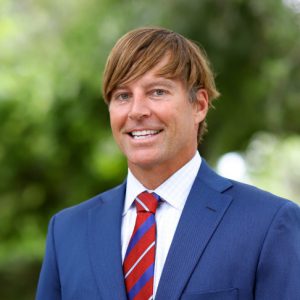Nursing homes fill a critical need for 24-hour care. They play a vital role in caring for vulnerable loved ones, but they also expose them to the risk of unanticipated sexual assault. Nursing home employees and fellow residents are potential suspects, and may commit improper sexual acts such as unwanted touching, indecent exposure, and rape.
A 2013 Department of Justice study evaluated nursing home assaults based on 12,555 questionnaires distributed across the country. From nursing home administrator and direct care worker perceptions, they determined that residents with “…cognitive impairment, behavioral abnormalities, or physical limitations…” are abused most often. They are easy victims as they’re usually unable to explain the assault. Those who can communicate are sometimes unwilling to report an incident.
The report also suggests that sexual assault occurs less frequently than other forms of nursing home abuse. When your loved one is the victim, however, any threat of sexual assault is one too many. At Hughey Law Firm, we believe that Charleston nursing homes have a duty to keep their residents safe. When they fail, we work hard to make them pay for the damages they cause. We have worked closely with our nursing home clients. Our lawyers know the governing laws and complex regulations. We understand the sense of betrayal the victims and their families feel. We rely on our knowledge and firm resources to provide the best outcomes for our clients.
Hughey Law Firm’s Case Results
 At Hughey Law Firm, we’ve been passionate advocates for injured people since 2007. Our attorneys have recovered over 100 million dollars in settlements and judgments for our clients. We understand that each case is different. Our firm can’t guarantee a specific outcome, but we promise experience, integrity, and commitment: our results demonstrate our track record of fighting for our clients.
At Hughey Law Firm, we’ve been passionate advocates for injured people since 2007. Our attorneys have recovered over 100 million dollars in settlements and judgments for our clients. We understand that each case is different. Our firm can’t guarantee a specific outcome, but we promise experience, integrity, and commitment: our results demonstrate our track record of fighting for our clients.
- Nursing home neglect, $220,000: Our client developed Stage 4 pressure sores which became infected. She underwent painful debridement procedures.
- Assisted living, $1,375,000: Our autistic client was a resident of a group home where he was improperly supervised. He escaped and was fatally injured by a drunk driver.
- Group home abuse and assault, $850,000: Our client sustained numerous injuries from multiple assaults while he was a resident in a group home. He lost brain activity and died after a choking incident.
- Nursing home neglect, $235,000: When a nursing home failed to monitor our client, she sustained a scaphoid fracture and head lacerations during a fall
What Is Nursing Home Sexual Assault?
Nursing home sexual assault is non-consensual sex usually initiated by an employee or another nursing home resident. A person may touch a victim inappropriately, expose his or her genitals, or commit rape. As with any assault, nonconsensual sex violates a nursing home resident’s legal rights under South Carolina’s Code of Laws and also under federal codes.
Sexual assaults cause immediate discomfort and physical injuries. A Journal of Women’s Health research article, “Older Women Survivors of Physical and Sexual Violence,“ reports common psychological issues among older sexual assault victims. A sexual assault victim experiences multiple physical and psychological injuries, including but not limited to:
- Bruises;
- Abrasions;
- Depression;
- Post-traumatic stress disorder;
- Sexually transmitted diseases;
- Substance abuse;
- Loss of dignity; and
- Humiliation.
Who Is Responsible for Nursing Home Sexual Assault
Nursing homes maintain a controlled, self-contained environment. For a fee, they provide residents with living arrangements, food, medical care, and social support. They also control residents’ day-to-day activities. Considering their degree of control, nursing homes have a duty to maintain a safe environment and to prevent neglect and abuse.
When a resident has cognitive or physical disabilities, a nursing home has an even greater duty to protect them from harm. When they fail in these duties, the administrator and staff are primarily responsible. Employees sometimes have separate duties and legal responsibilities.
- Negligence: Nursing homes have a duty to monitor residents, provide care and keep them safe. If an employee or resident assaults another resident, the nursing home is negligent. Nursing homes also have a duty to supervise their employees’ activities.
- Negligent hiring: If an employee had a sexual assault history, the nursing home is responsible for learning this during the screening process. If they missed a criminal history or knew of the history and hired him anyway, they’re responsible for negligent hiring.
- Criminal acts: An employer is responsible for an employee’s actions while they are acting within the scope of their employment. The employee is also responsible for their own criminal acts.
- Subcontractor responsibility: Depending on their contractual agreements, a subcontractor or other non-employee may be responsible for their actions. An employee’s contractual responsibility doesn’t diminish the nursing home’s liability.
Nursing homes are subject to criminal penalties under South Carolina Adult protection Codes, §43-35-5. They also risk Medicare penalties for non-compliance with federal Public Health Regulations, §42-483. Employees or residents who commit sexual acts commit crimes under South Carolina’s Morality and Decency laws §16-15-130 and Offenses Against The Person laws §16-3-600.
What Damages Can a Nursing Home Sexual Abuse Claim Recover?
Nursing home sexual abuse cases include economic damages, general damages, and in some cases punitive damages. Economic damages are the out-of-pocket expenses incurred as a result of medical treatment. As nursing homes have medical staff, they should charge no additional costs for added medical expenses due to an assault. If a patient is treated in a hospital or other medical facility, their medical costs would be part of their claim. Economic damages include:
- Medical bills;
- Doctor visits;
- Physical therapy;
- psychological therapy; and
- Medical transportation expenses.
General damages indemnify an assault victim for psychological and emotional damage as well as subjective damages such as pain. They are a significant component of an assault victim’s damages, including but not limited to:
- Pain and suffering;
- Post-traumatic stress disorder;
- Depression;
- Anxiety;
- Stress;
- Diminished family relationships;
- Loss of dignity; and
- Humiliation.
A South Carolina jury may award punitive damages based SC Code §15-32-510. A plaintiff must present “…clear and convincing evidence…” of a defendant’s “…willful, wanton, or reckless conduct.” A nursing home sexual assault case against the person who committed the assault may meet this difficult standard.
Can a Nursing Home Successfully Defend a Sexual Assault Case?
A nursing home can make it difficult for an assault victim’s attorney to obtain key evidence. Health Insurance Portability and Accountability Act (HIPAA) privacy guidelines prevent access to nursing home resident/patient records. Workplace privacy guidelines prohibit attorneys from viewing employee records without permission. A defendant’s ability to restrict evidence accessibility reduces a plaintiff’s capacity to confirm liability issues. It also makes it easier for nursing homes to proceed with affirmative defenses:
- No negligence: A nursing home facility can avoid a judgment by convincing a jury they weren’t negligent in causing or allowing the assault.
- Comparative negligence: Under South Carolina’s Modified Comparative Fault law, if a nursing home convinces a jury that the plaintiff was partially negligent for the assault, the jury reduces any award by the person’s negligence percentage. If an injured plaintiff is 51 percent at fault or greater, he or she doesn’t recover damages.
At Hughey Law Firm, we’ve handled many complex nursing home cases. We’re skilled in investigating, assembling, litigation, and negotiating your nursing home sexual assault claim. We understand that skill and preparation can overcome a nursing home’s defense maneuvers, no matter the size of the defendant.
Contact Our Charleston Nursing Home Sexual Assault Lawyers
 If your loved one was assaulted in a nursing home, let us help your family. At Hughey Law Firm, our nursing home abuse lawyers have represented nursing home clients in the Charleston metro region and in communities throughout South Carolina. We’re also licensed in North Carolina and Georgia. Our firm handles cases on a contingency basis: we don’t charge attorney fees until we resolve our clients’ cases.
If your loved one was assaulted in a nursing home, let us help your family. At Hughey Law Firm, our nursing home abuse lawyers have represented nursing home clients in the Charleston metro region and in communities throughout South Carolina. We’re also licensed in North Carolina and Georgia. Our firm handles cases on a contingency basis: we don’t charge attorney fees until we resolve our clients’ cases.
Call us at (843) 881-8644 or complete our online contact form. We’ll schedule a free consultation to determine if we can help you.

